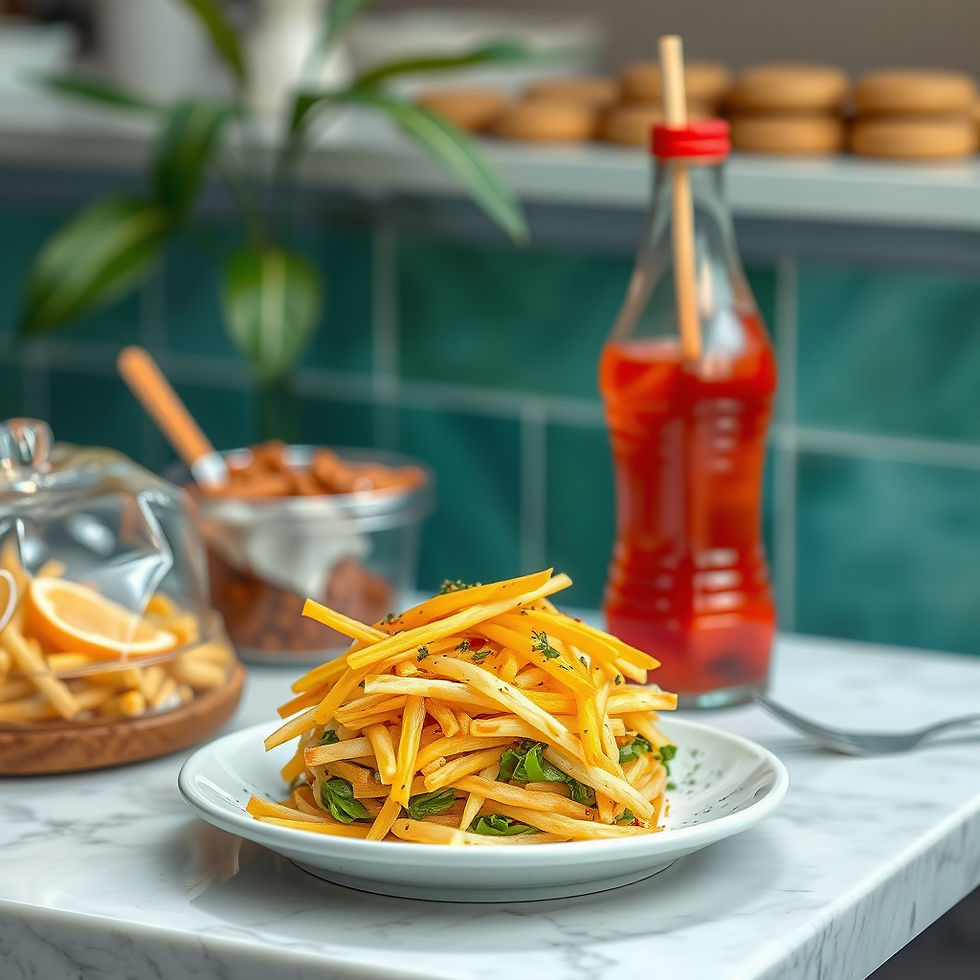Processed Food Study Finds Minimally Processed Diets Lead to Twice the Weight Loss
- Erika Rawes
- Aug 4, 2025
- 2 min read
Updated: Aug 8, 2025
A new clinical trial was recently published in Nature Medicine on August 4, adding compelling evidence to a growing global concern: ultra-processed foods may be sabotaging weight loss, even when they meet official nutritional guidelines.
Researchers from University College London conducted the trial, comparing how people responded to an ultra-processed food (UPF) diet versus a minimally processed food (MPF) one when they shared similar nutritional values.
Key finding: Participants lost twice as much weight on the minimally processed diet—even though both met the UK’s official Eatwell Guide recommendations
The study involved a crossover trial with 55 adults who typically ate diets high in UPFs. Each participant tried both diets (8 weeks each), separated by a washout period of four weeks. Both the MPF and UPF diets were matched for calories and nutrient targets but differed in how much industrial processing the foods had undergone.
Both groups lost weight on each diet, but the MPF diet group lost 2.06% of their body weight, while the UPF diet group lost roughly 1.05% of their body weight. This was only over a very short term, too. If the study were longer, we could expect to see dramatic differences in body weight loss amounts. The MPF diet also led to reduced cravings, improved satiety, and preserved lean muscle mass better.

A Pattern Is Emerging
This isn’t the first study to show problems with ultra-processed foods. In 2019, NIH researcher Dr. Kevin Hall published a study in Cell Metabolism showing that people ate 500 more calories per day when consuming a diet of UPFs than they did when on an unprocessed diet.
Since then, observational studies from Brazil, France, Spain, and the U.S. have repeatedly linked higher UPF consumption to everything from obesity to type 2 diabetes to cardiovascular disease.
Not Just Junk Food
UPFs aren’t always limited to foods like soda, candy, and chips. They may also include:
High-protein snack bars
Plant-based meat analogs
Flavored yogurts
Breakfast cereals with additives
Some meal-replacement drinks
Many of these are marketed as nutritionally balanced or even “health” foods. But the study suggests that what happens in the body may not match what’s on the label.
Takeaways from the processed food study
Satiety signals and energy density: UPFs tend not to keep you full and energized as long as MPFs or unprocessed foods
Hyper-palatability: Additives and textures may override natural appetite control.
Speed of eating: People tend to eat UPFs faster, which can reduce satiety and increase total intake.
Most dietary guidelines—including those from the USDA and the UK’s NHS—focus on nutrients, not processing. But this study adds weight to a call from public health experts to:
Shift guidance toward whole and minimally processed foods
Update food labeling systems to reflect the processing level
Limit marketing of UPFs, especially to children
As consumers, we can also learn to read nutrition labels and how foods impact our health. Even if your food “hits the macros,” it may still be undermining your health if it’s ultra-processed.
This study doesn’t say you can never eat a packaged food again—but it strongly suggests that making more of your meals from whole, recognizable ingredients can help with weight loss, appetite control, feeling better overall, and long-term metabolic health.




Comments